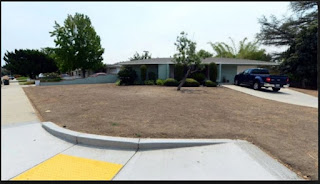Lawns In North Bay - Due to "HIGH" Water Bills
Let your grass "sleep it off". Is your lawn a little yellowish
or brown during the Summer? Don't worry ... this is called
'dormancy' and it's how your lawn protects itself against
the heat. It's true ... so, when the weather turns hot and
dry, let your lawn sleep. This means no watering, no
mowing and no foot traffic. And don't worry ... your lawn
will awaken soon enough.
Water early! Watering in the morning means less water is
lost to evaporation.Water 2.5 cm a week, including rainfall.
Most people overwater, yet experts say you only need
2.5 cm (1 inch) of water, a week, including rainfall,
maintain a vibrant healthy lawn.
Use a rain barrel ... Don't let storm water go to waste.
Make sure the downspouts from your home's eaves
troughs are disconnected from the sewer system and
instead drain into a rain barrel, where you can use
the water when needed.
Mow High. Raise your lawn mower blades to a height
of 7.5 cm (3 inches). Longer grass has deeper roots,
can crowd out weeds and above all, retains the lawn
soil's moisture.
Leave the grass clippings. Stop bagging or racking up
your lawn clippings. Clippings provide valuable nutrients
(nitrogen), help retain moisture and make it difficult for
weeds to grow. Clippings break down quickly and
disappear within a day or twoMow when grass is dry.
For an even 3" inch lawn, cut your grass when it's dry.
This also helps prevent clippings from clogging your
mower. Mow late in the day to avoid morning dew.
Fertilize only in Spring and Fall. Avoid fertilizing your
lawn during the Summer months or you'll get burned
in more ways than one. Fertilizing during hot and humid
days will burn your grass, stress your lawn's soil and
hike up your water bill as you try to revive your lawn.
All a healthy lawn needs during the Summer is the use
of proper mowing techniques and 2.5 cm (1 "inch) a
week of water ... including rainfall.




Comments
Post a Comment